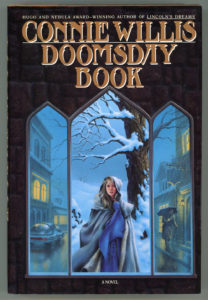
As with my April list, this one is mostly fiction. And it runs from classics to new stuff.
Enjoy!
Fredrik Backman – A Man Called Ove
We have here a charming little book from a first-time Swedish author. Backman writes about a grumpy old Scandinavian man named Ove and his life. When we join the story, Ove contemplates suicide. And he attempts it multiple times. By the time we end the story, we’ve found out about what makes Ove cranky, his relationship with his father and his wife, and what it takes to put Ove in a better mood.
This isn’t really my usual kind of novel, but I really loved this one. Excellent storytelling. And, for a bonus, there’s a film version!
Greg Grandin – Fordlandia
Grandin’s book tells the story of that time carmaker and anti-Semite Henry Ford bought up land in Amazonian Brazil and turned it into a model town that ‘civilized’ Indigenous people, embodied Ford’s values, and attempted to revive a Brazilian rubber industry that collapsed for clear economic reasons.
Got at all that? It went about as the reader would imagine. Not well at all. Grandin tells the story in a compelling way, and I think he does a nice job getting at the problems with Ford’s vision. He also explains in a clear way – using great examples – the underlying principles of Fordism.
William Shakespeare – Coriolanus
I’ve been interested in Roman history for a long time. It so happens that Coriolanus is one of the only Shakespeare plays set in ancient Rome I haven’t read. And I was a bit curious about whether the name ‘Coriolanus Snow’ from the Hunger Games series owed any debt to the play. So, I gave it a read.
I don’t have much in the way of insight to add to discussion of the Bard. I’ll simply say that I enjoyed it and I’d recommend it. Coriolanus is a particularly prideful character. Skilled, but an elitist. Perhaps that informed Suzanne Collins as she wrote the Hunger Games. Or perhaps it didn’t. Who’s to say?
Connie Willis – Doomsday Book
As a sci-fi fan, I’m a bit embarrassed to say I’d never read anything by Connie Willis before this book (and a short story called ‘Fire Watch‘). Embarrassed because Willis has won more Hugo and Nebula awards than any other sci-fi author in history. But I fixed this with Doomsday Book!
It’s the first book in her Oxford Time Travel series. And it’s a timely book in 2020-2021. Willis tells the story of global pandemic followed by a local epidemic that strikes the 21st century UK. Meanwhile, the Oxford history department sends a young graduate student back in time to the Black Death. Along the way, the student gets lost in the past, American tourists protest mask mandates and pandemic restrictions, and the main character of the series (Mr. Dunsworthy) comes down with the flu.
I might mention Willis wrote all this nearly 30 years before COVID-19. In that respect, it rings many of the same bells as Asimov’s The Naked Sun.
Colin Woodard – American Nations
Here’s Woodard’s big idea. Rather than a single nation, he thinks the United States (and Canada) is a loose coalition of eleven nations. From the Yankeedom of New England (and Minnesota) to the Deep South to the Far West /Left Coast to the First Nation of Indigenous people, Woodard finds little basis for the idea that much of anything really unites the so-called United States.
Given the last decade or so of U.S. politics, one sees why this book attracts people now.
Woodard uses this as a framework for major events in U.S. history. And as long as we leave it at that, I think he does well for himself. When I think about my own southern Indiana childhood and compare it to my home now in Iowa City, I see merit in the framework. Woodard’s description of the nation of ‘Greater Appalachia’ rings true to southern Indiana life. And his description of the ‘Midlands’ nation rings true to the middle of Iowa.
But readers shouldn’t take the thesis too seriously. As a general framework with many notable exceptions? Sure. As a thesis under a rigorous understanding of ‘nations’? Not so much.